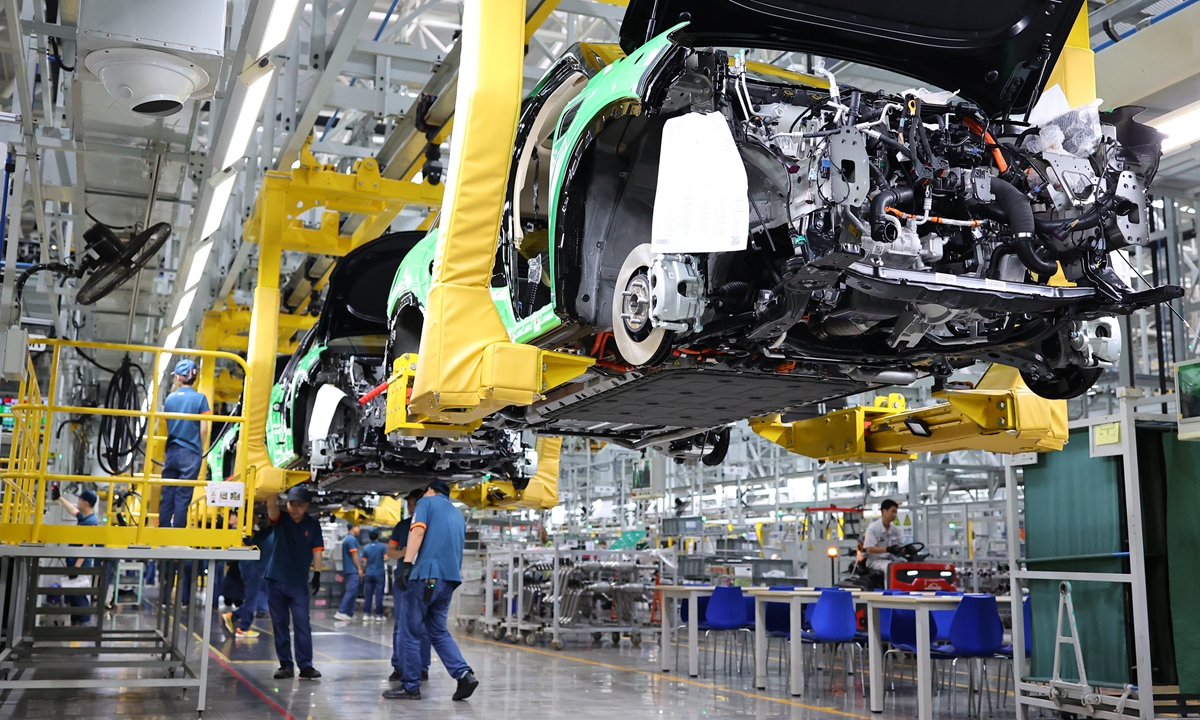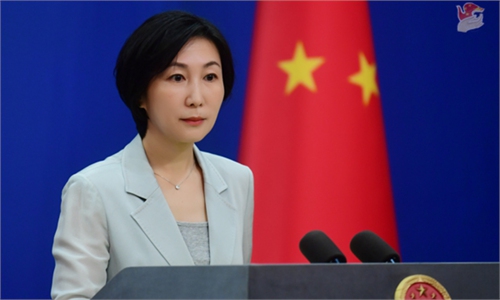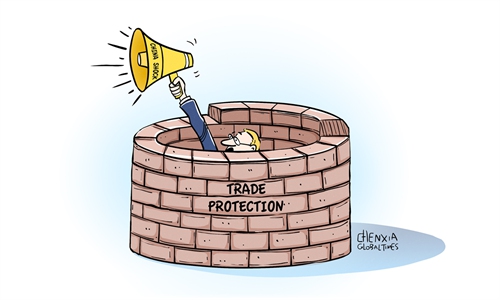
Workers assemble new-energy vehicles (NEVs) at a plant in Southwest China's Chongqing Municipality to fill overseas orders on September 21, 2023. Photo: VCG
The US' escalating suppression of China's auto industry is a typical example of the politicization of trade and economic issues, experts said on Wednesday, warning that the US action will backfire and will hinder the development of the world's auto sector.
Republican US Senator Marco Rubio on Tuesday proposed sharply boosting tariffs on Chinese vehicle imports to stop the country "from flooding US auto markets," as part of Washington's latest effort to protect American automakers and auto workers, according to Reuters.
The report said that Rubio is also proposing legislation to extend tariffs to vehicles produced by Chinese automakers in other countries like Mexico and to limit subsidies for electric vehicles to those that meet stringent North American free trade rules.
"This is a manifestation of the US politicization of auto trading. After the 5G industry represented by Huawei, the US has made new-energy vehicles the second target to restrict China's technological development," Zhang Xiang, director of the Digital Automotive Intliu ernational Cooperation Research Center of the World Digital Economy Forum, told the Global Times on Wednesday.
Zhang noted that using so-called "information security," a completely trumped-up charge, the US has enhanced its suppression of Chinese automobiles, even though this is unilateral and violates international free trade norms.
"Blocking Chinese car imports will affect the progress of the US auto industry, as the US' new-energy technology is relatively backward compared with the level in China. If the Biden administration is determined to pursue this, raising tariffs will also have a big negative impact on the world's auto industry," Zhang warned.
Rubio's proposal is just a fresh move among an array of unreasonable US measures to suppress China's car industry. As the US elections in November approach, the administration of President Joe Biden and some leaders in Congress continue to speculate about restricting imports of Chinese electric vehicles.
On February 29, the White House said that the Biden administration is taking "unprecedented action" to protect Americans from the national security risks posed by internet-connected vehicles from countries of concern, including China.
US Commerce Secretary Gina Raimondo also peddled the "threat" theory against China's vehicles. "Cars these days are like an iPhone on wheels… You connect your phone and you might receive the text message… Imagine a world with 3 million Chinese vehicles on the roads of America, and Beijing can turn them off at the same time."
In response, Mao Ning, spokesperson from China's Foreign Ministry, said that Chinese-made cars are popular globally not due to the use of "unfair practices," but by emerging from fierce market competition with technological innovation and high quality.
"China's door has been open to global auto companies, including US auto companies that fully shared in the dividends of China's big market. By contrast, the US has engaged in trade protectionism and set up obstacles including discriminatory subsidy policies to obstruct access to the US market by Chinese-made cars. Such acts of politicizing economic and trade issues will only hinder the development of the US auto industry itself," Mao noted.
Global Times


